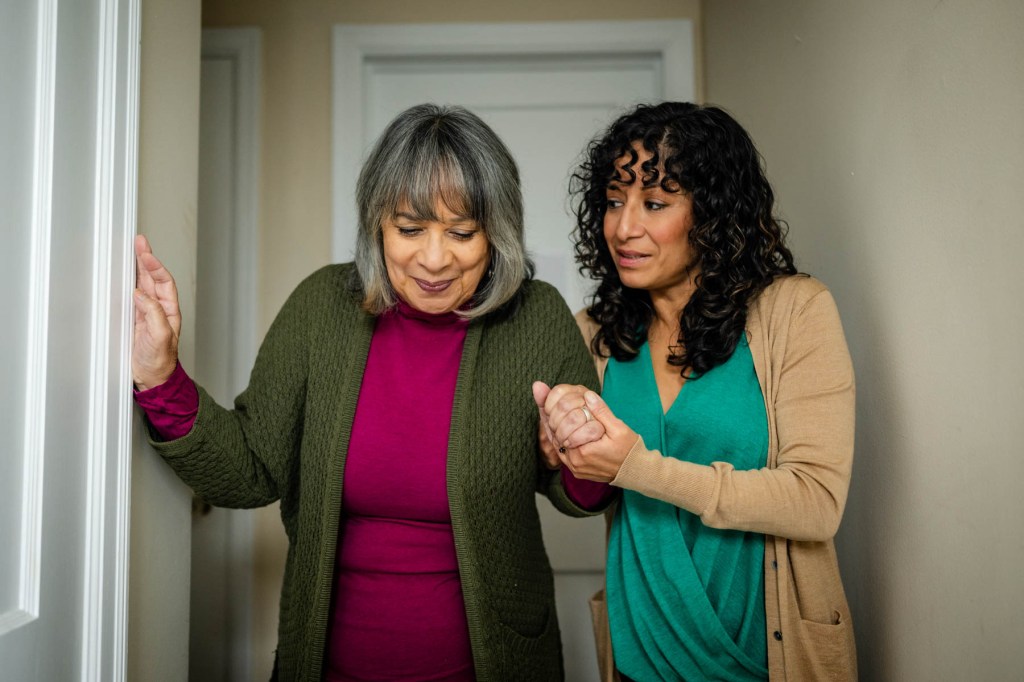
Are You A Caregiver and Don’t Know It?
It’s a fact: many people are caregivers and don’t even realize it. As reported by Careforth CEO Matt Marek in McKnight’s Home Care, nearly one third of the U.S. population either gives or receives family care at home. The U.S. Department of Health and Human Services (HHS) estimates that about 53 million Americans currently serve as caregivers, and a 2022 statement from the U.S. Centers for Medicare & Medicaid Services said, “Many of the more than 150 million people who receive health care coverage through Medicare, Medicaid, and the Health Insurance Marketplaces rely on trusted friends and family for care.”
The act of caregiving, especially for a family member or loved one, can often go unrecognized by those providing the care. Caregiving includes things like helping someone bathe, cook and clean. Many people see this as just part of being a parent, family member, child or friend, but it’s actually considered caregiving. Recognizing yourself as a primary caregiver is important because you might be able to get extra support and resources.
Caregiver Self-Evaluation
To find out if you are a caregiver, start by thinking about your situation. Taking this assessment can help you answer the question, “Am I a caregiver?”
- Are you currently providing care to a parent, spouse, child, friend, or family member?
- Does your loved one have a disability, long-term illness, or other health condition needing support?
- Do you help your loved one with errands, such as shopping, cooking, or cleaning?
- Do you help your loved one bathe, dress, and/or groom?
- Do you frequently help your loved one manage doctor appointments and/or medications?
- Do you often help your loved one with transportation and/or ambulation?
- Do you provide emotional support and/or social activity for your loved one?
If you answered yes to any of these questions, you are officially a caregiver. You may not think of yourself as one, but it’s important to recognize the support you provide and the significance of your role as caregiver.
“Being a caregiver can look different depending on the needs of your loved one,” says Rebecca Oliver, Senior Manager, Care Management at Careforth. “Recognizing yourself as that support person allows you to step into this caregiving community that is full of support and resources.”
Caregiver Resources and Support Are Available
Once you’ve officially self-identified your valued role as caregiver, you can begin to find and access the resources readily available to you. From emotional coaching to financial assistance to caregiver support groups, as a caregiver you can utilize a variety of resources that can improve the care you provide to your loved one. These resources can help you take better care of your loved one and prevent caregiver burnout and fatigue.
Careforth’s Expert Care Team Supports Caregivers
Careforth’s expert team of nurses, social workers, care managers, and coaches, are here to help you navigate these caregiving resources and find the support that’s right for you. Our team is committed to ensuring that you feel supported at every turn of your caregiving journey, so you can confidently care for your loved one at home.
Visit the How We Help page on our site or contact uscontact us to learn more about how Careforth supports caregivers like you.
Caregiver Definition FAQs
You are a family caregiver if you support a loved one with a diagnosed disability, health condition, or long-term sickness with daily activities. These include managing household chores (shopping, cooking, and cleaning), community involvement (transporting and coordinating social or medical engagements), and basic living needs (bathing, dressing, and grooming).
A caregiver provides daily emotional, physical, and mental support for their loved one. The role varies based on the needs of the individual, but a caregiver often assists with tasks large and small to support their family member and ensure the highest possible quality of life.
Caregiving can be a physically and emotionally challenging role, and with it comes the risk of burnout. Caregivers can begin to resent their loved one or find themselves quick to anger. It’s critical that caregivers remain attentive to their own needs, seeking respite to help prevent burnout.
Caregiver stress can show up as persistent physical and emotional exhaustion. If you’re pulling away from relationships, struggling with sleep, feeling down, or seeking out unhealthy coping mechanisms, it’s time to talk with friends, connect with a health professional, or find a caregiver support group.
Caregiver fatigue, often referred to as burnout, can manifest in a variety of ways: sleep struggles, decreased motivation, excessive use or abuse of alcohol or drugs, feelings of depression, and struggles with keeping appointments or upholding responsibilities. Seek help early and often to prevent burnout.


